The American Geophysical Union (AGU) has selected its new class of Fellows. The organization will recognize these esteemed scientists at the 2017 AGU Fall Meeting in New Orleans during the Honors Tribute on Wednesday, 13 December 2017. President-elect Robin Bell will present the newly elected class. Please welcome our 61 colleagues who have joined our AGU College of Fellows!
A brief statement of the achievements for which each of the 61 Fellows was elected is provided below.
Fellows

M. JOAN ALEXANDER
For outstanding contributions to understanding atmospheric gravity waves and their role in atmospheric circulation.
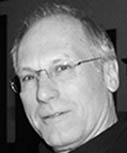
JEFFREY ALT
For pioneering and innovative contributions to understanding geochemical exchanges between seawater and the ocean crust.

DAVID D. BRESHEARS
For contributions to the discovery of how climate change interacts with biotic disturbance to cause large-scale forest mortality.
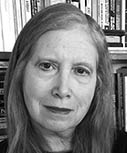
BONNIE J. BURATTI
For fundamental contributions in applying quantitative radiative transfer models to interpret photometric data of planetary surfaces.
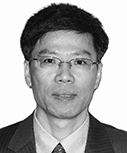
WEI-JUN CAI
For groundbreaking research on estuarine and coastal processes and their relationship to the global carbon cycle.

JOSEP G. CANADELL
For significant and innovative work on the global carbon cycle, addressing natural and human systems, with broad impacts on science and society.
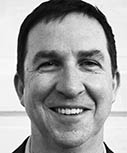
DON P. CHAMBERS
For outstanding contributions to sea level research and ocean dynamics using satellite observations.
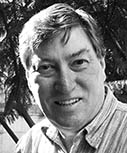
KELLY CHANCE
For contributions to the spectroscopy and remote sensing of atmospheric trace gases.
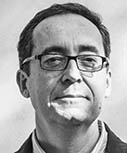
MARC CHAUSSIDON
For developing microanalytical techniques to make major discoveries in geochemistry and cosmochemistry.
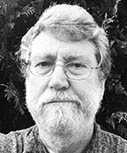
ALAN D. CHAVE
For fundamental studies of the oceans and solid Earth using electromagnetic methods.
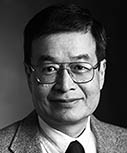
WANG-PING CHEN
For innovative and world-class studies of subduction zone earthquakes and evolution of the lithosphere during continental collision.
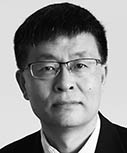
HAI CHENG
For breakthrough improvements in uranium series dating of cave deposits that reveal the causes of ice ages and abrupt hydroclimatic change.
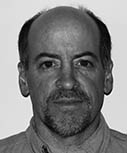
PETER G. DECELLES
For advancing the understanding of the dynamic evolution of foreland basins and mountain-building processes.

GERALD DICKENS
For advances in understanding oceanic methane hydrates and their potential impact on Earth’s climate.

PAUL A. DIRMEYER
For pioneering the study of global soil wetness and its role in land-atmosphere coupling and seasonal predictability of the climate system.
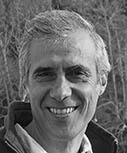
CLAUDIO FACCENNA
For advances in understanding the processes and consequences of subduction in settings ranging from geologic to upper mantle in scale.

JOHN CARL FOSTER
For transformative insights and work in magnetosphere-plasmasphere-ionosphere coupling, ionospheric storm response, and radiation belt dynamics.
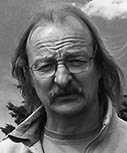
ROGER FRANÇOIS
For profound applications of radioactive and stable isotopic tracers to studies of a wide range of physical and chemical cycles in the ocean.
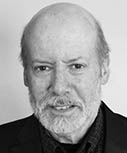
ARTHUR D. FRANKEL
For exceptional insight into earthquake physics and extraordinary dedication to its use for effective risk reduction.
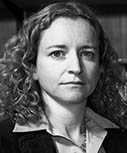
HELEN AMANDA FRICKER
For advances in the understanding of Antarctic ice sheets, ice shelves, and subglacial hydrologic systems.

JONATHAN GREGORY
For profound and enduring contributions to our understanding of ocean dynamics, climate sensitivity, and global sea level change.

STEPHEN M. GRIFFIES
For exceptional and sustained contributions to the understanding of large-scale ocean circulation and physics and seminal advances in ocean modeling.
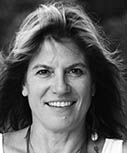
NANCY BETH GRIMM
For integration of desert and urban aquatic and terrestrial biogeochemistry with ecological and social theory to advance a biogeoscience of cities.
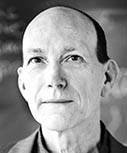
GEORGE HELFFRICH
For pioneering seismological and thermodynamic studies of Earth’s mantle and core.
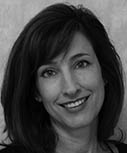
SUSAN S. HUBBARD
For fundamental contributions to hydrology through the application of geophysics.
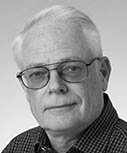
ERIK R. IVINS
For varied and enduring contributions to the study of Earth structure, dynamics, and climate through the lens of geodesy and geophysics.
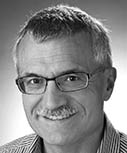
FORTUNAT JOOS
For fundamental development and application of coupled climate-biogeochemical models to understand the global carbon cycle.
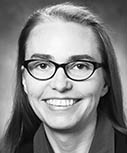
SAMANTHA BENTON JOYE
For groundbreaking investigations of the fate of and microbial response to oil and gas released into the marine environment.
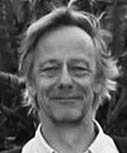
YANN H. KERR
For transformative remote sensing research to characterize and monitor local and global phenomena of the hydrosphere and biosphere.
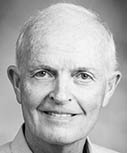
ALAN K. KNAPP
For fundamental contributions to our understanding of the mechanisms underlying ecosystem responses to climatic variability and extremity.

MATTHEW J. KOHN
For outstanding contributions to metamorphic petrology, tectonics, and paleoclimatology.

RONALD KWOK
For advances in the remote sensing of sea ice covers of the Arctic and Southern oceans.
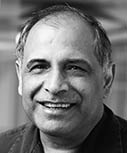
UPMANU LALL
For incisive contributions to the understanding and predictability of hydrologic processes at regional and global scales.
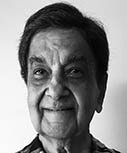
MURLI H. MANGHNANI
For pioneering experiments on the elastic and structural properties of molten silicates and core alloys.
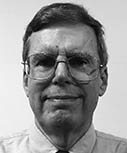
BARRY H. MAUK
For pioneering investigations of charged particle injection, acceleration, and loss within the magnetospheres of Earth and the gas giant planets.
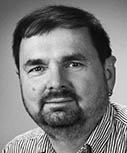
KLAUS MEZGER
For groundbreaking contributions to the chronology of terrestrial high-grade metamorphism and the early differentiation history of planetary bodies.
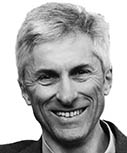
ALBERTO MONTANARI
For groundbreaking contributions to understanding hydrologic change through physically based stochastic modeling.

LOUIS-NOËL MORESI
For fundamental contributions to the computational geodynamics of planetary interiors, plate tectonics, and deformation of the continental lithosphere.
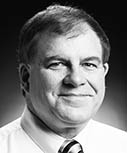
SCOTT LAWRENCE MURCHIE
For innovative, revolutionary, and influential discoveries on the geology of Mars, Mercury, near-Earth asteroids, and the moons of Jupiter.
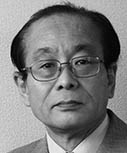
TERUYUKI NAKAJIMA
For innovative radiative transfer and remote sensing accomplishments and for exceptional international leadership in promoting climate science.

RICHARD NORBY
For outstanding research on organism and ecosystem responses to elevated carbon dioxide atmospheres and environmental changes.

JOHN PLANE
For fundamental advances in understanding the chemistry of Earth’s upper atmosphere.
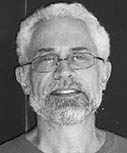
JOHN RAYMOND
For outstanding contributions in developing and applying innovative theoretical tools for analyzing high-temperature plasmas in astrophysical environments, especially the Sun and solar wind.
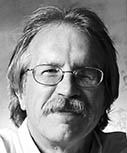
STEVEN ROECKER
For significant and sustained contributions to observational seismology leading to breakthroughs in understanding of mountain belt–building processes.
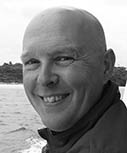
EELCO JOHAN ROHLING
For original contributions to sea level reconstruction and for fundamental insights into understanding anoxic sediment formation.

ARES J. ROSAKIS
For monumental achievements in the field of experimental fracture dynamics that have transformed our understanding of earthquake rupture processes.

YINON RUDICH
For advances in the understanding of atmospheric chemical processes at the molecular level with implications for climate and human health.

LYNN M. RUSSELL
For pioneering contributions to the fundamental science of organic aerosols through innovative theory, instrumentation, measurements, and modeling.

DANIEL SCHERTZER
For pioneering works on multifractals and generalized scale invariance and their wide applications in geophysics.
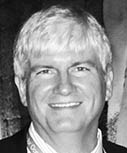
WALTER H. F. SMITH
For fundamental contributions to marine geodesy, especially applying satellite altimetry to bathymetry, physical oceanography, and oceanic tectonics.
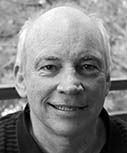
ROBERT J. STERN
For fundamental insights into subduction inception, ophiolite origins, arc and continent evolution, and the onset of plate tectonics.

PAUL JAMES TACKLEY
For fundamental contributions to the understanding of mantle dynamics on Earth and other planets.
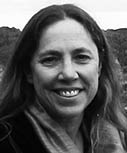
MARGARET S. TORN
For fundamental contributions to understanding soil carbon stabilization and sustained leadership in quantifying feedbacks between the carbon cycle and climate.

GREGORY E. TUCKER
For leadership in exploring landscape evolution through empirically constrained numerical models forced by realistic geology, hydrology, and tectonics.
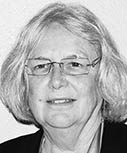
SUSAN L. USTIN
For pioneering work in hyperspectral remote sensing that has improved our ability to understand and manage changes in terrestrial ecosystems.
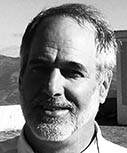
RICHARD M. VOGEL
For development of hydrologic science and statistical methods in service to society and water resources and natural hazard management.

PATRICIA L. WIBERG
For insight into and development of widely used tools for the study of sediment dynamics from source to sink.
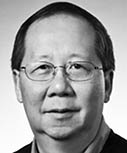
TENG-FONG WONG
For seminal contributions to the knowledge of the evolution of mechanical and hydrological properties during deformation of rocks.
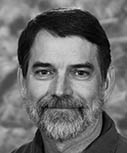
ROGER V. YELLE
For significant advances in understanding the upper atmospheres of planets and implications for planetary evolution.
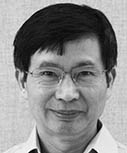
YOUXUE ZHANG (张有学)
For original theoretical, experimental, and observational contributions to geochemical diffusion processes on Earth and other solar system bodies.

EDWARD ZIPSER
For fundamental contributions to the study of convective clouds by creative use of field programs and satellite observations.
Correction, 18 October 2017: When published, this article contained an earlier version of a number of citations. The article has been updated with the correct, final citations.
Citation:
(2017), Celebrating the 2017 class of Fellows, Eos, 98, https://doi.org/10.1029/2017EO083373. Published on 05 October 2017.
Text © 2017. The authors. CC BY-NC-ND 3.0
Except where otherwise noted, images are subject to copyright. Any reuse without express permission from the copyright owner is prohibited.

